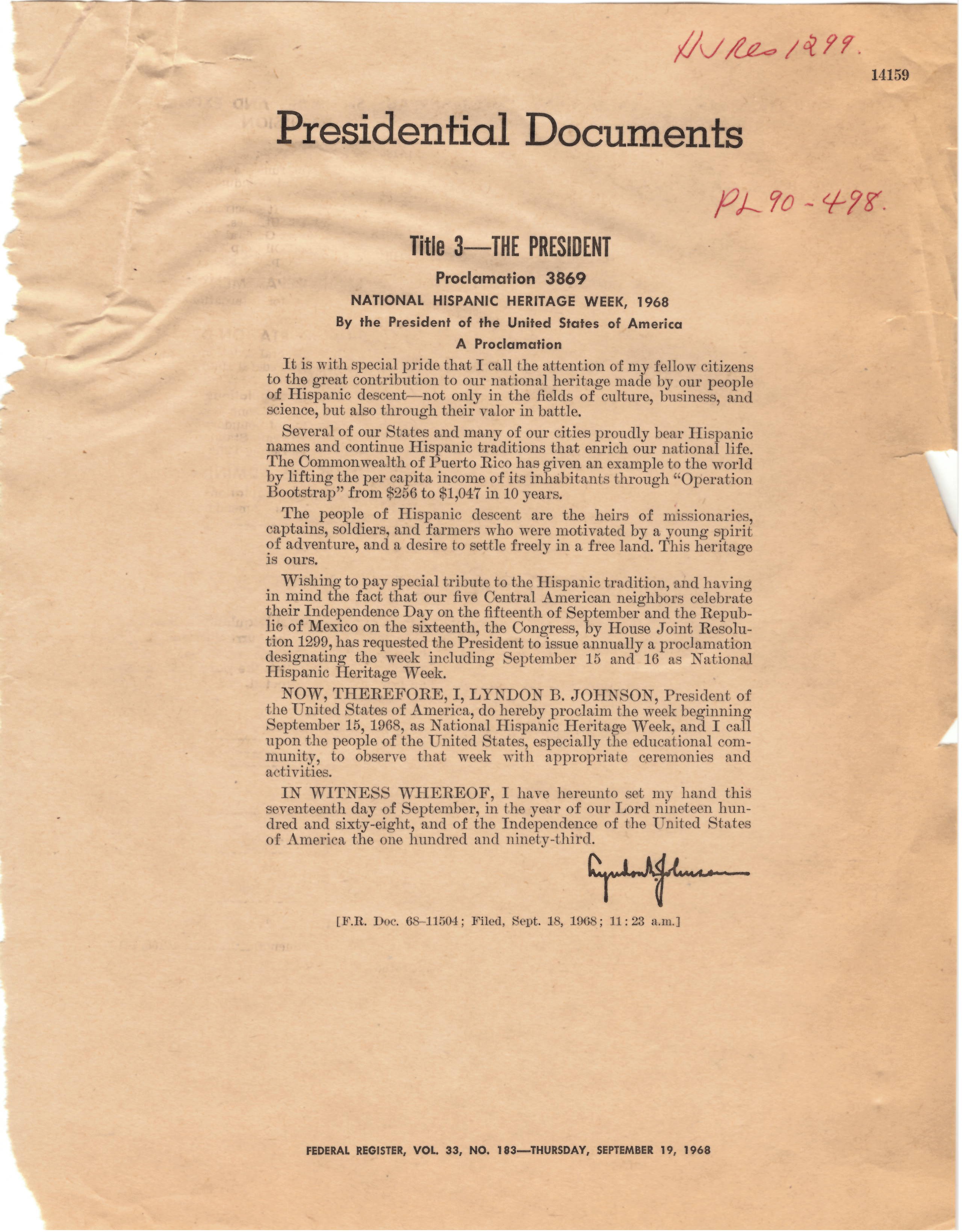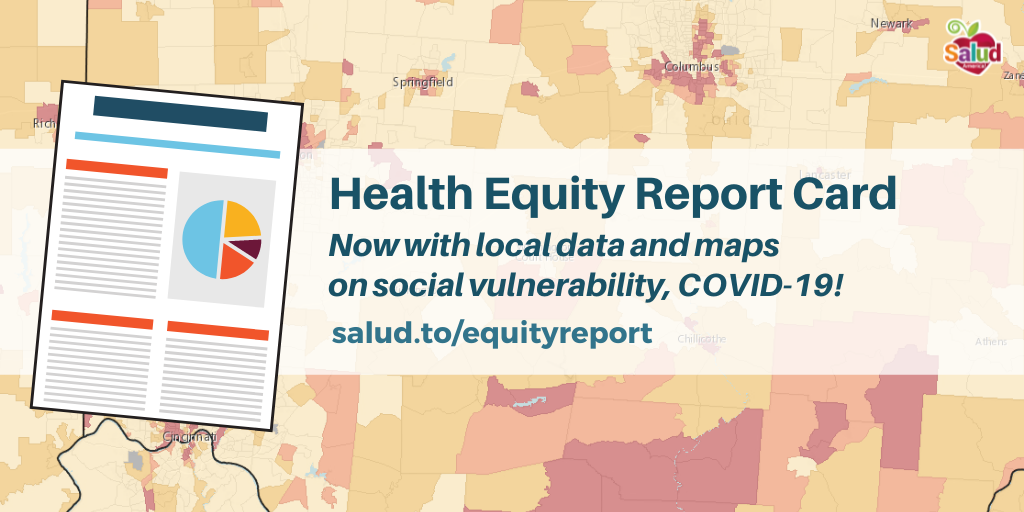Share On Social!
At Salud America!, we’re excited to discuss Latino health during Hispanic Heritage Month!
This annual U.S. observance, from Sept. 15 to Oct. 15, celebrates the histories, cultures and contributions of American citizens whose ancestors came from Spain, Mexico, the Caribbean and Central and South America.
How Did Hispanic Heritage Month Start?
U.S. Congressmen George E. Brown and Edward R. Roybal of Los Angeles, and Henry B. Gonzales, were among those who introduced legislation on the topic in 1968.

President Lyndon Johnson implemented the observance as Hispanic Heritage Week that year.
U.S. Rep. Esteban E. Torres of Pico Rivera proposed the observance be expanded to cover a 31-day period. President Ronald Reagan implemented the expansion to Hispanic Heritage Month.
In 1989, President George H.W. Bush became the first president to declare the period from Sept. 15 to Oct. 15 as National Hispanic Heritage Month.
“Not all of the contributions made by Hispanic Americans to our society are so visible or so widely celebrated, however. Hispanic Americans have enriched our nation beyond measure with the quiet strength of closely knit families and proud communities,” Bush said.
Learn more at the National Archives.
PBS offers great multimedia content on Hispanic Heritage Month. The U.S. government also runs a website on Hispanic Heritage Month.
Why Is the Date of Hispanic Heritage Month Important?
Sept. 15 is significant because it is the anniversary of independence for Latin American countries Costa Rica, El Salvador, Guatemala, Honduras and Nicaragua, according to the U.S. Library of Congress.
In addition, Mexico and Chile celebrate their independence days on Sept. 16 and Sept. 18.
Also, Columbus Day or Día de la Raza, which is Oct. 12, falls within this 30 day period.
On Sept. 14, 2021, President Joe Biden issued a presidential proclamation on National Hispanic Heritage Month:
“During National Hispanic Heritage Month, we recognize that Hispanic heritage is American heritage. We see it in every aspect of our national life: on our television and movie screens, in the music that moves our feet, and in the foods we enjoy. We benefit from the many contributions of Hispanic scientists working in labs across the country to help us fight COVID-19 and the doctors and the nurses on the front lines caring for people’s health.”
“Our Nation is represented by Hispanic diplomats who share our values in countries all over the world and strengthened by military members and their families who serve and sacrifice for the United States. Our communities are represented by Hispanic elected officials, and our children are taught by Hispanic teachers. Our future will be shaped by Hispanic engineers who are working to develop new technology that will help us grasp our clean energy future and by the skilled union workers who are going to build it.”
Learn more about the diversity of Latinos!
What is Salud America! Doing to Celebrate Hispanic Heritage Month?
Salud America! will create new content around Hispanic Heritage Month.
Here are some of our plans:
- 9/5/23: A #SaludTues Tweetchat on Building Healthier Futures for Latinos
- 9/12/23: 23 Surprising Ways to Celebrate Hispanic Heritage Month
- 9/15/23: Take Action for Civic Engagement
- 9/20/23: A Webinar on Addressing Latinos’ Social Needs
- Historical Latino “Salud Heroes”
- New Latino “Salud Heroes” of Public Health
In addition, Salud America! will share its other tools and news on Latino health equity.

For example, we updated the Salud America! Health Equity Report Card.
First launched in 2017, the Health Equity Report Card auto-generates Latino-focused and local data with interactive maps and comparative gauges. This can help you visualize and explore inequities in housing, transit, poverty, health care, food, and education.
You will see how your county stacks up in these health equity issues — now including child opportunity, location affordability, and transit access — compared to your state and the nation.
Then you can share the Report Card with your local leaders to advocate for healthy change!
Get your Health Equity Report Card!
What Can You Do to Celebrate Hispanic Heritage Month?
Why not speak up against racism and discrimination?
Decades of unfair social, economic, and political systems have created inequitable communities that are disproportionately impacted by injury, disease, and premature death.
These unfair systems aren’t random. They are rooted in racism.
Systemic racism makes it harder for Latinos and other people of color to get healthcare, housing, transportation, education, employment, healthy food, and more.
Download the free Salud America! “Get Your City to Declare Racism a Public Health Crisis Action Pack“!
The Action Pack will help you gain feedback from local social justice groups and advocates of color. It will also help you start a conversation with city leaders for a resolution to declare racism a public health issue along with a commitment to take action to change policies and practices. It will also help build local support.
Explore More:
Overcoming Harmful BiasesBy The Numbers
3
Big Excuses
people use to justify discriminatory behavior



